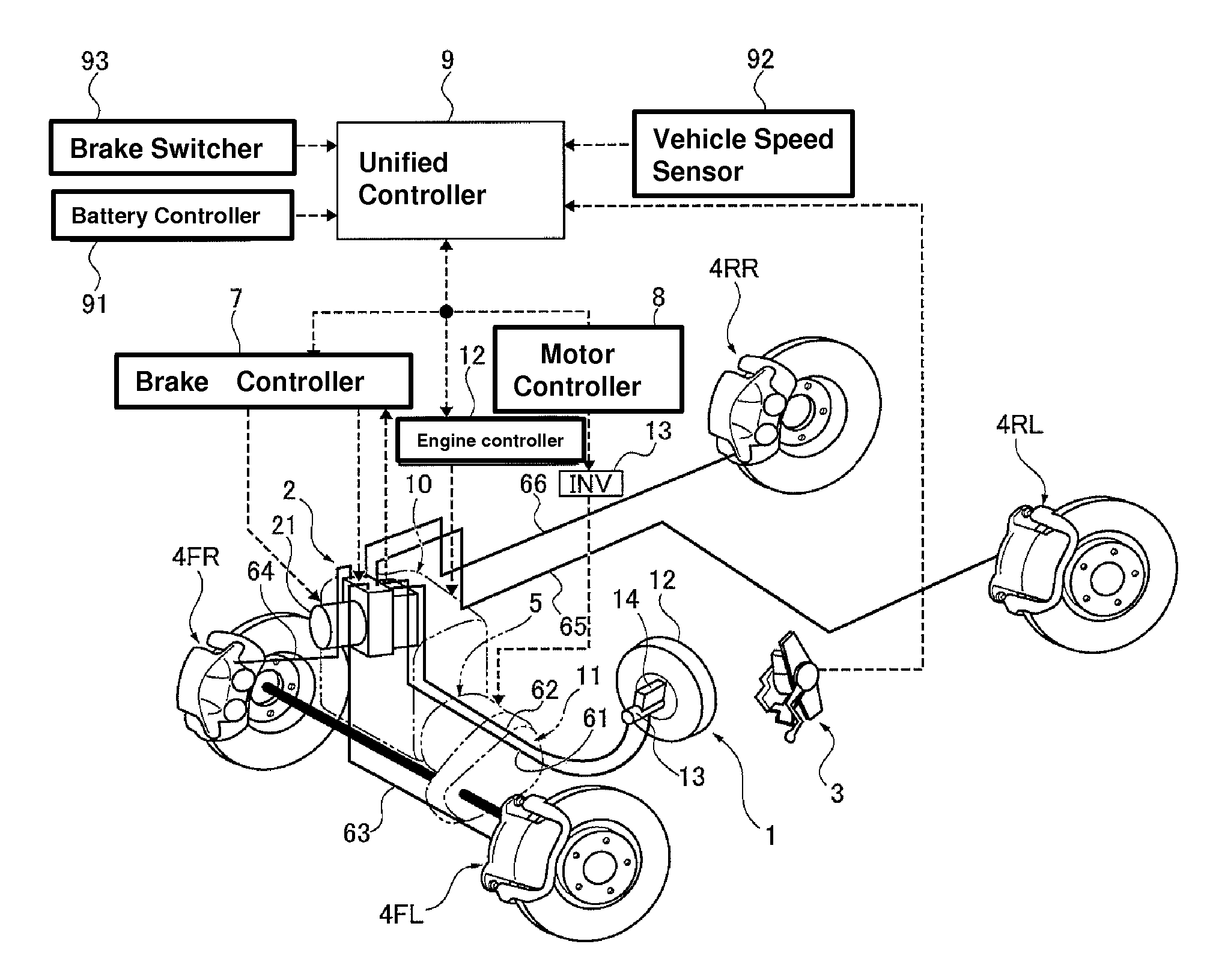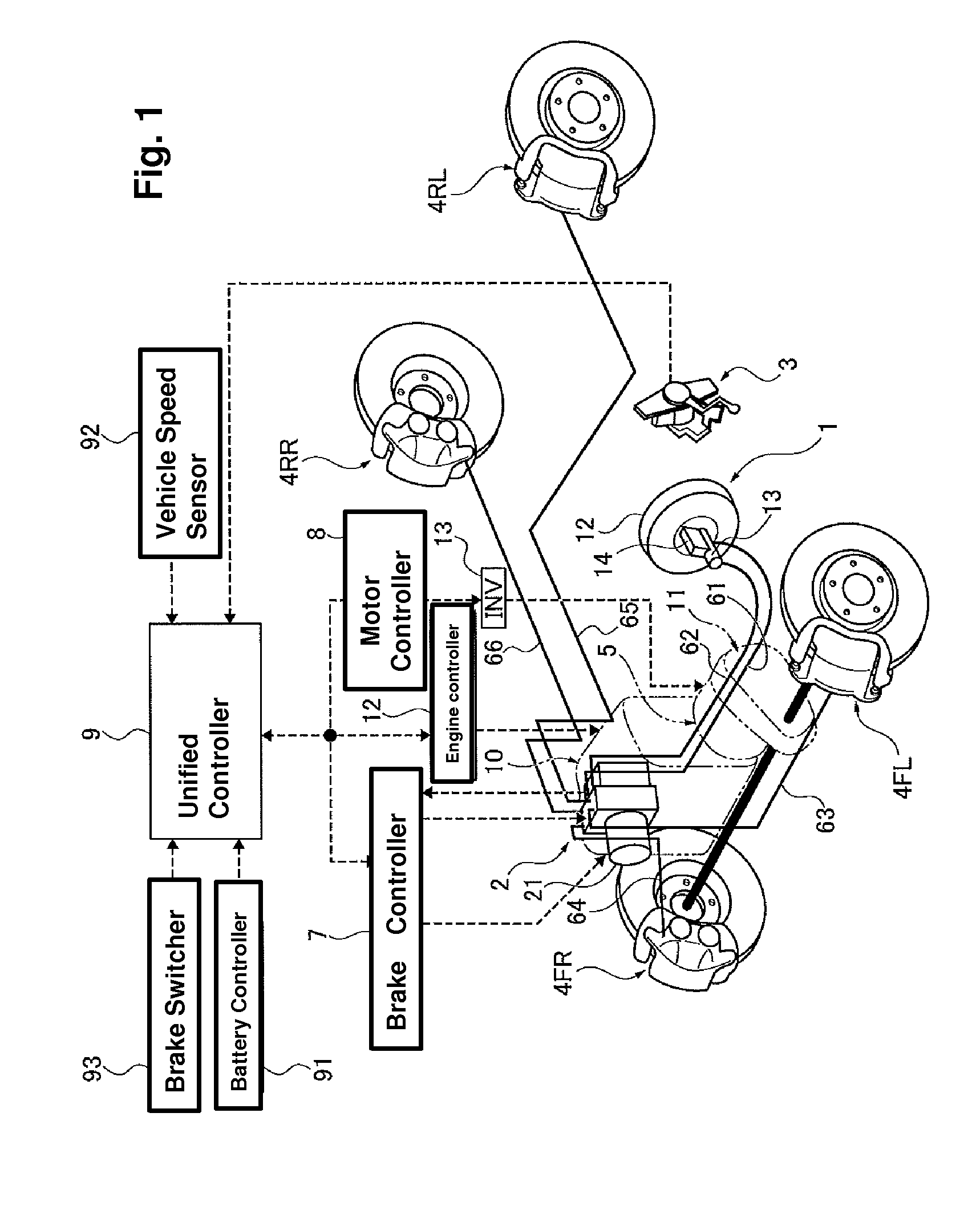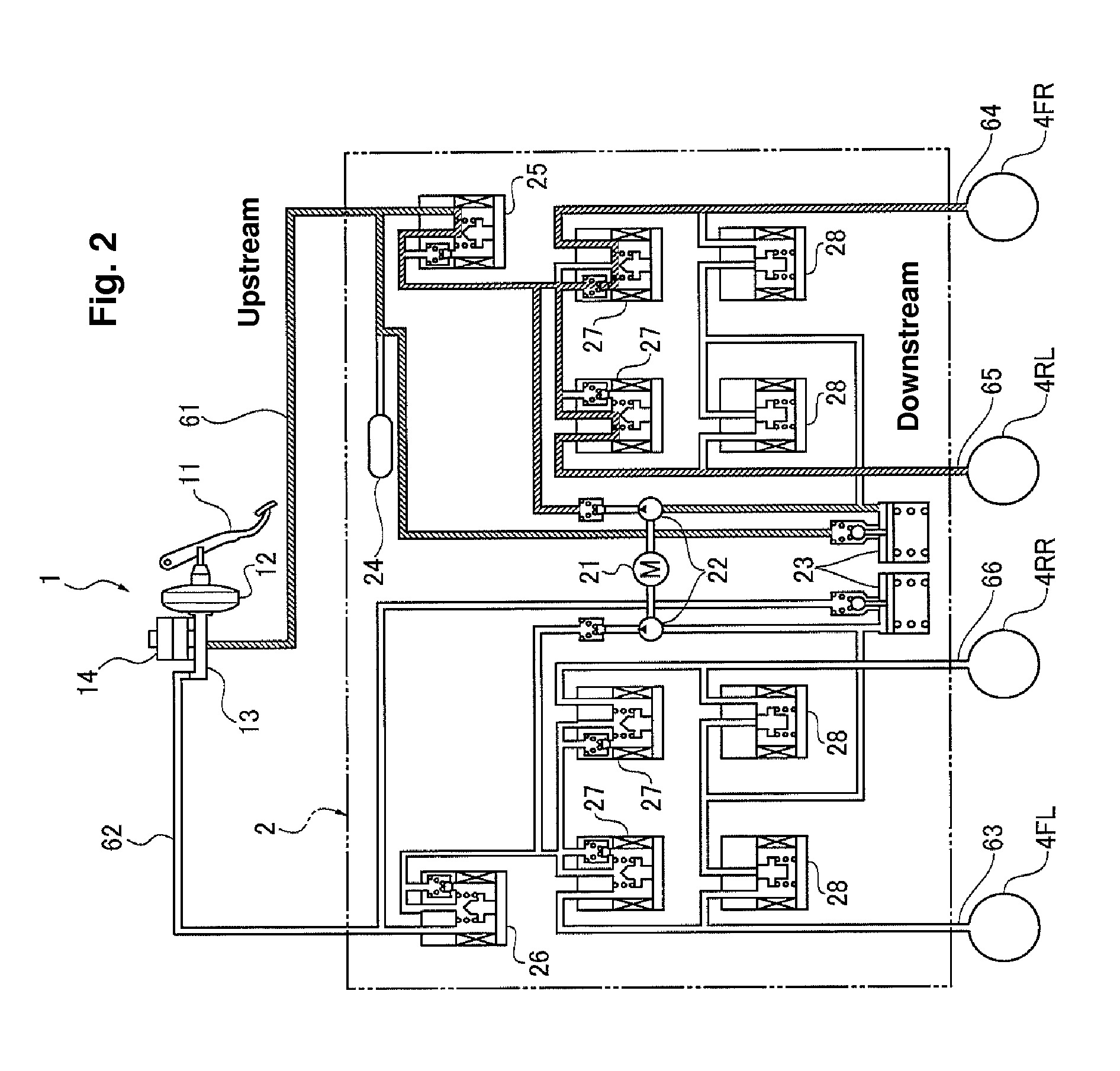Brake control system for an electrically driven vehicle
a technology of electrical drive and control system, which is applied in the direction of braking system, analogue process for specific applications, instruments, etc., can solve the problems of fuel or electrical efficiency degradation, unsatisfactory brake feel, etc., and achieve the reduction of fuel consumption, the effect of reducing the amount of fuel consumed and saving electricity
- Summary
- Abstract
- Description
- Claims
- Application Information
AI Technical Summary
Benefits of technology
Problems solved by technology
Method used
Image
Examples
Embodiment Construction
[0027]The following is an explanation of certain embodiments of a brake control system for an electrically driven vehicle with reference to the drawings.
[0028]FIG. 1 shows a system configuration of a hybrid electric vehicle (HEV) of a front wheel drive type to which a brake control system according to embodiments of the present invention can be applied. FIG. 2 illustrates a VDC brake system as an example of brake fluid pressure actuator. Below is an explanation of regenerative coordinate brake system with references to these drawings.
[0029]A brake deceleration generating mechanism of the brake control system according to this example includes a brake fluid pressure generating unit 1, a VDC brake fluid unit 2 (also called a brake fluid pressure actuator), a stroke sensor 3 for detecting a brake pedal stroke, wheel cylinders, specifically a left front wheel cylinder (4FL), a right front wheel cylinder (4FR), a left rear wheel cylinder (RL), and a right rear wheel cylinder (4RR), and a...
PUM
 Login to View More
Login to View More Abstract
Description
Claims
Application Information
 Login to View More
Login to View More - R&D
- Intellectual Property
- Life Sciences
- Materials
- Tech Scout
- Unparalleled Data Quality
- Higher Quality Content
- 60% Fewer Hallucinations
Browse by: Latest US Patents, China's latest patents, Technical Efficacy Thesaurus, Application Domain, Technology Topic, Popular Technical Reports.
© 2025 PatSnap. All rights reserved.Legal|Privacy policy|Modern Slavery Act Transparency Statement|Sitemap|About US| Contact US: help@patsnap.com



